Interview with Nicholas Templeman
2March 25, 2015 by Ville Raivio
VR: Your age and occupation?
Products from Pukimo Raivio
Ralph Lauren, Black Label suit, size 52EU
NT: I’m 32 years old, and I make shoes.
VR: Your educational background?
NT: Before my apprenticeship at John Lobb Ltd. (see video beginning from 1:35) I studied for a BA Degree in Fine Art. I specialised in Printmaking – etching, lithography, silkscreen; the technical aspects of the creative process interest me far more than any of that hokum conceptual stuff that’s currently in vogue.
VR: Have you any children or spouse (and how do they relate to your shoe enthusiasm)?
NT: I’m married with 2 children. My kids are too young to have any sort of opinion, but as a shoemaker in a house full of women, I think my future outlook is pretty good, if a bit busy.
VR: …and your parent’s and siblings’ reactions back when you decided to become a cordwainer?
NT: My family and friends have always been very supportive.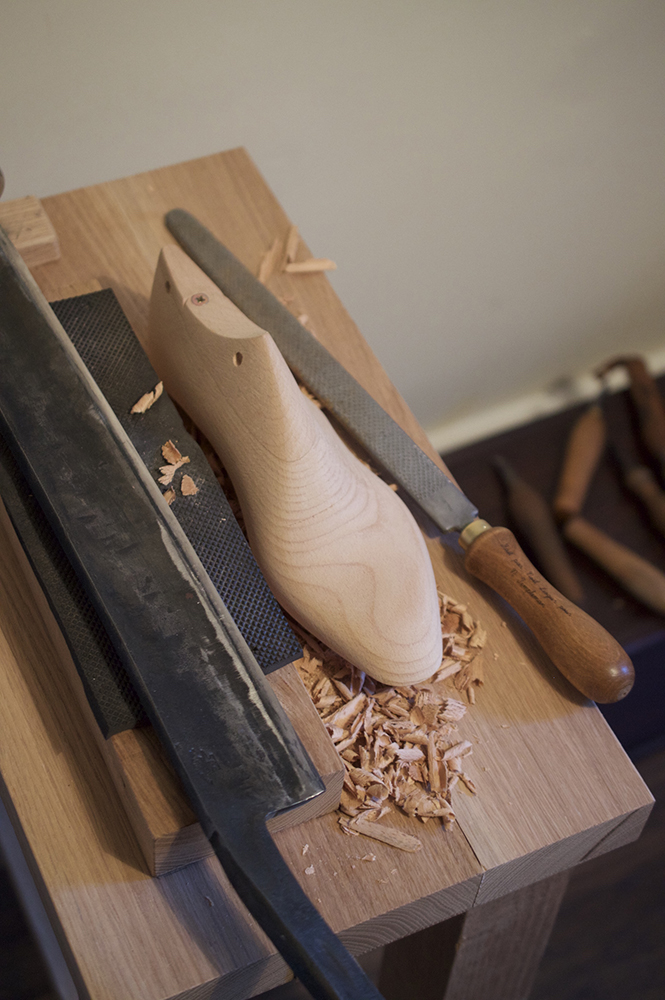
VR: What other hobbies or passions do you have besides shoemaking?
NT: I’m interested in pretty much anything that people can create and stamp a part of their personality into; particularly clothing, watches, perfume. I’m a fairly decent cyclist too; I generally ride about 300km a week or so. Bicycles themselves are interesting from an engineering and aesthetic point of view, too, so cycling ticks all the right boxes of exercise to the point of suffering along with all the technological and stylistic curiosity that goes hand in hand with it. Also, lots of coffee, can’t cycle without coffee.
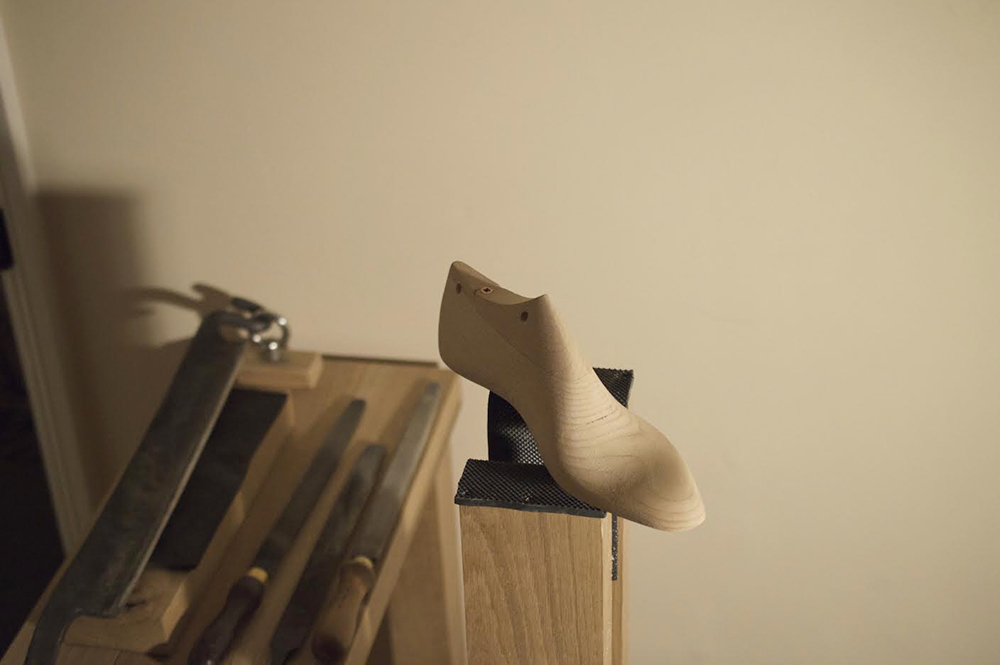
VR: How did you first become interested in shoes, and when did you turn your eyes towards artisanal shoemaking? Why classics instead of fashion?
NT: In my younger days I was even more of a dandy than now, and shoes were always the thing that excited me the most. My taste was obviously awful at that age but I always took a lot of pride in the shoes I had and gradually managed to make better choices as I went along. I’ve always had a creative streak from an early age and enjoyed doing things by hand, but owing to the naivety of youth it wasn’t until I was at university that I had the eureka moment, and figured out I could make a living from making something I loved. As soon as the veil was lifted, that was it, there was no looking back.
VR: How have you gathered your knowledge of The Gentle Craft — from books, in-house training, workshops or somewhere else?
NT: I was fortunate that when I was looking to learn, there w
as a firm looking to teach. My apprenticeship was full-time so I benefited from being fully submerged in pretty much the only place in the English-speaking world that has all you could wish to learn under one roof. It was almost enough to make you believe in destiny, and I set about asking as many questions of anyone I could without being too much of an annoyance. Books are a great resource, I spend a lot of time reading anyway and I’ve collected a fair few of the old technical manuals which I’ve learned a lot from, but there’s no better way to learn than watching someone actually doing it.
VR: How would you describe the overall style of the shoes you make?
NT: A lot of my inspiration comes from that wonderful period in our recent history, La Belle Époque, where craftsmanship essentially hit an apex before industrialisation really took over. We’ve lost an awful lot since those enlightened days, and so much of our craft has become informed by how machinery operates rather than how we once did, and I try to incorporate a sense of proportion, shape and fit that reflects that era in my work.
VR: Do you have a favourite shoe model (eg. monk, derby, oxford, balmoral boot) and leather type?
NT: I have many favourites, but I think I’ll always come back to a good old Oxford.
VR: There are hundreds of cordwainers in Europe alone — why should my readers choose you?
NT: There’s a lot of people doing great work out there and it’s the one’s being true to themselves that are generally worth investing in, so if you choose to order from me it should be because you like me and what I do rather than any sort of gimmick. I’m not a salesman for a conglomerate who just wants a sale to pass down to the next person to deal with, I’m the person striving to achieve the result you expect from me and I’m maintaining my own reputation, not someone else’s, so I don’t really have much choice but to succeed.
VR: What is your definition of a good shoe?
NT: A good shoe is one you could consider a friend, the one you insist on wearing for those big occasions.
VR: Who or what inspires you?
NT: People who aren’t afraid to do what they do in their own way. Philippe Dufour creates some of the most beautifully realised watches I’ve seen, almost completely alone and in the exact way he chooses. I like to tell myself sometimes that in another life I might have made a decent perfumer, then I look at the work that Jacques Guerlain and Ernest Daltroff left behind and I struggle to see how anyone now could create something as perfect as Après L’Ondée or Tabac Blond, if the marketing department even allowed you to try.
VR: Finally, what separates an English shoe from other European handmade pairs?
NT: Well, I’m about as English as a man can be, I learned in England, but I connect more with the French way of thinking, to be honest. I’m a bit of a Francophile anyway, my wife is French so that’s essential, and their passion for maintaining their craft and tradition is something I’ve always admired – something we’ve sort of forgotten about over here. We don’t have anything to compare to the Compagnons du Devoir, we don’t celebrate our Meilleur Ouvriers in the same way, and it’s a pity. So, while I think the work coming from London’s West End workshops in that golden age of a century ago is without equal, today I feel as though I relate to my contemporaries in France the most. I like to think I benefit from the best of both worlds as a result.
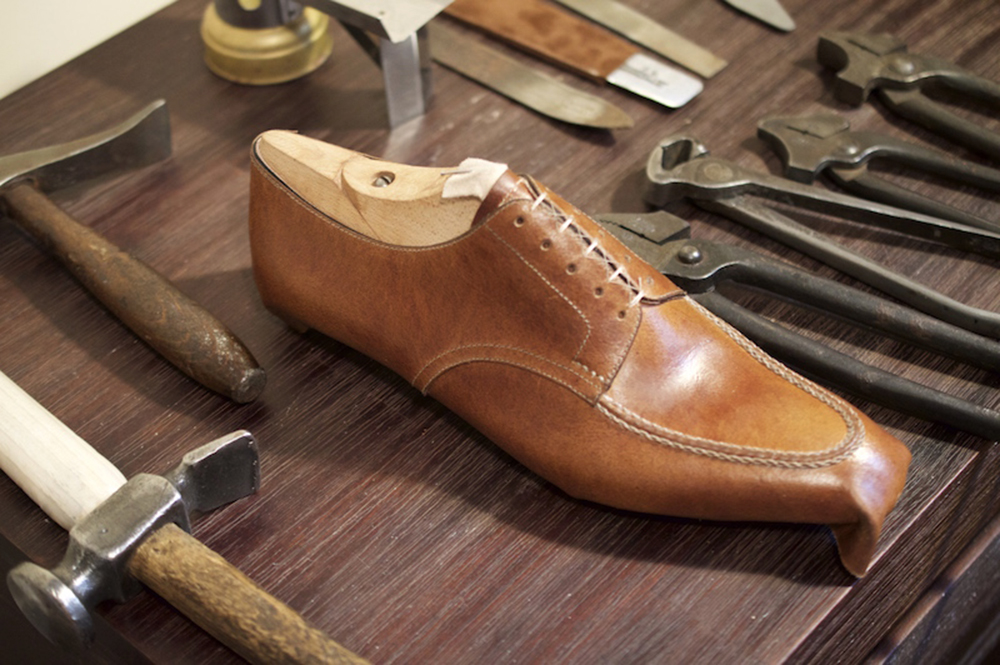
Photos: Nicholas Templeman
Category Cordwainers, Interviews | Tags:

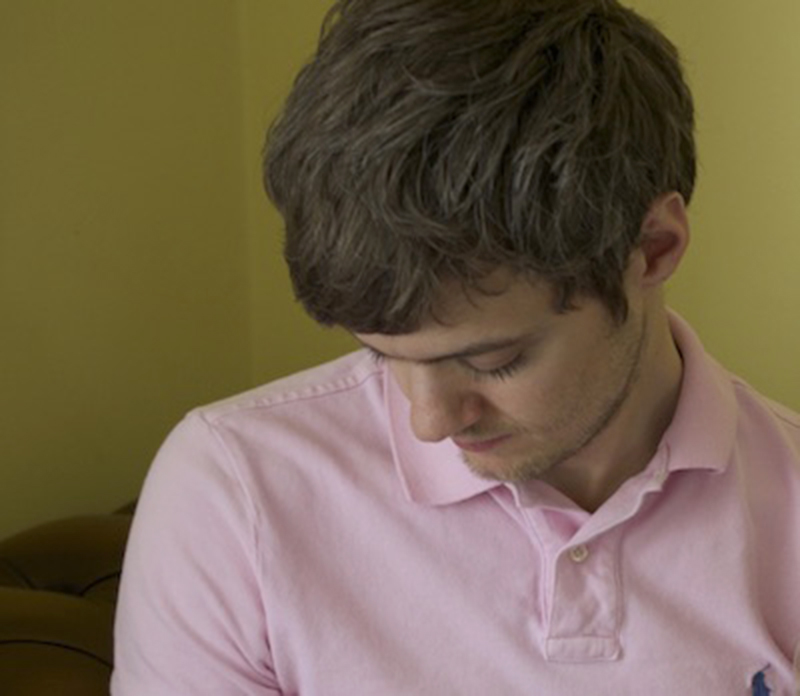
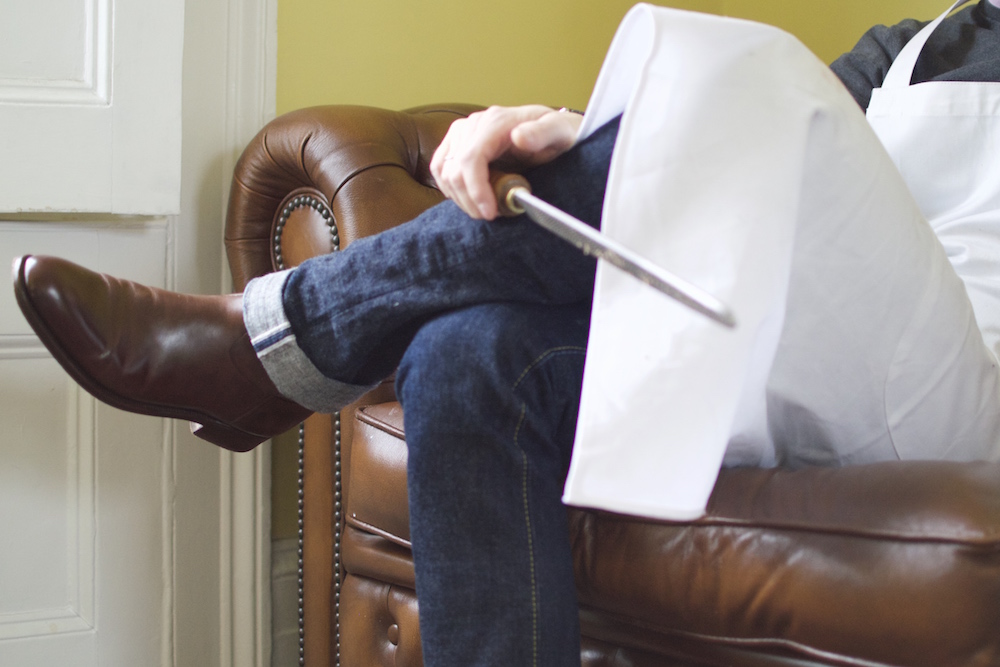

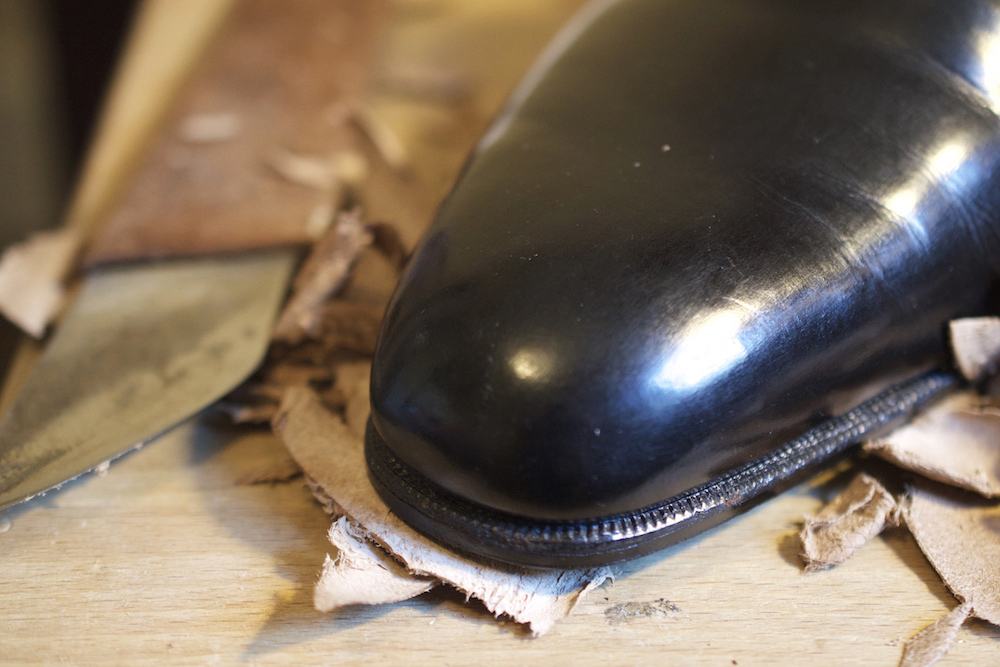
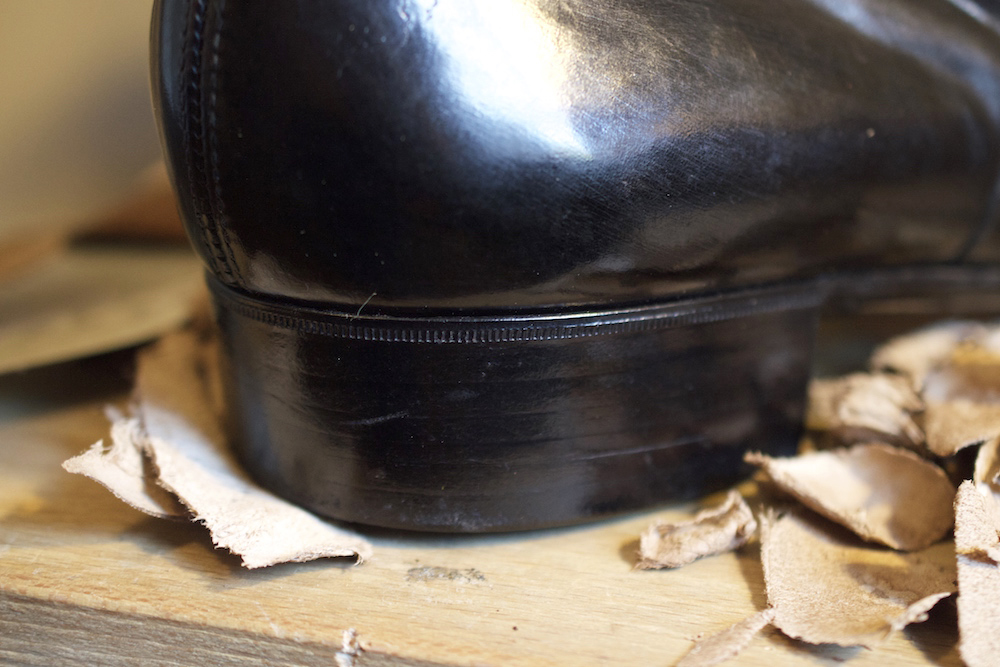
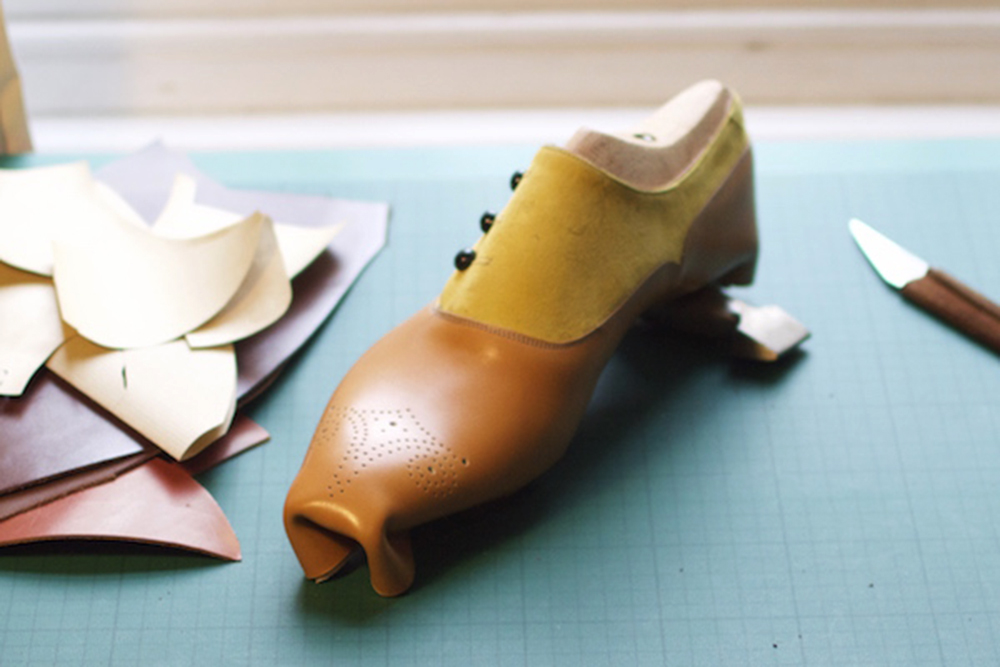
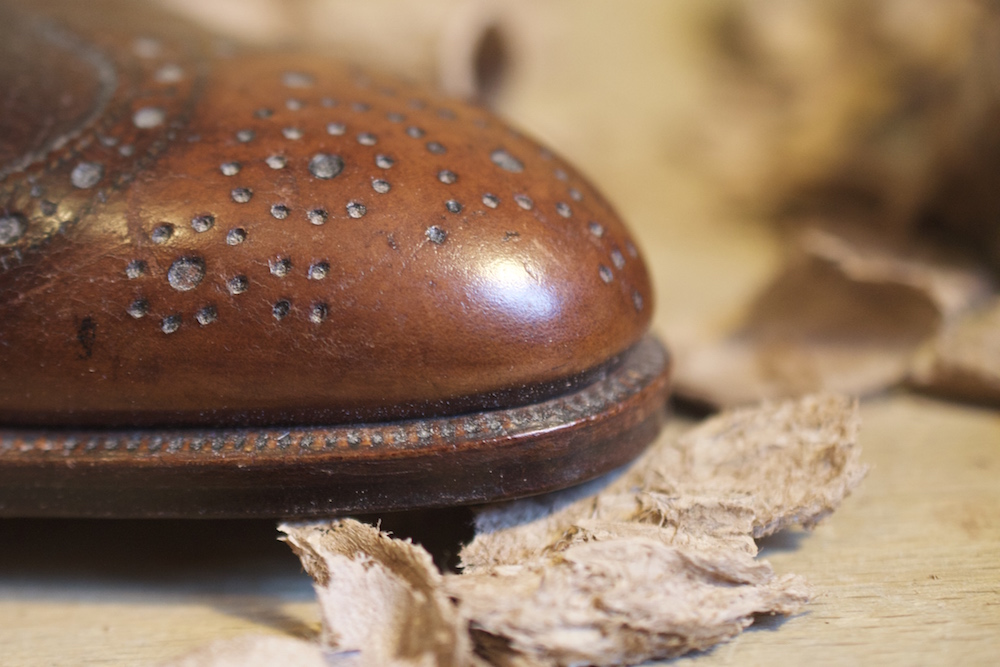
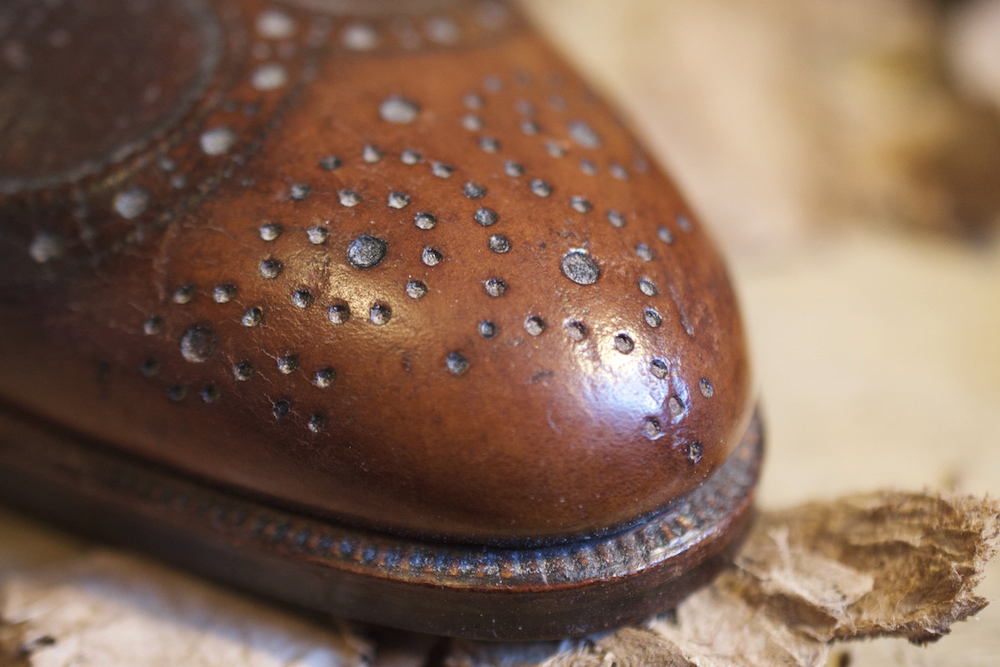
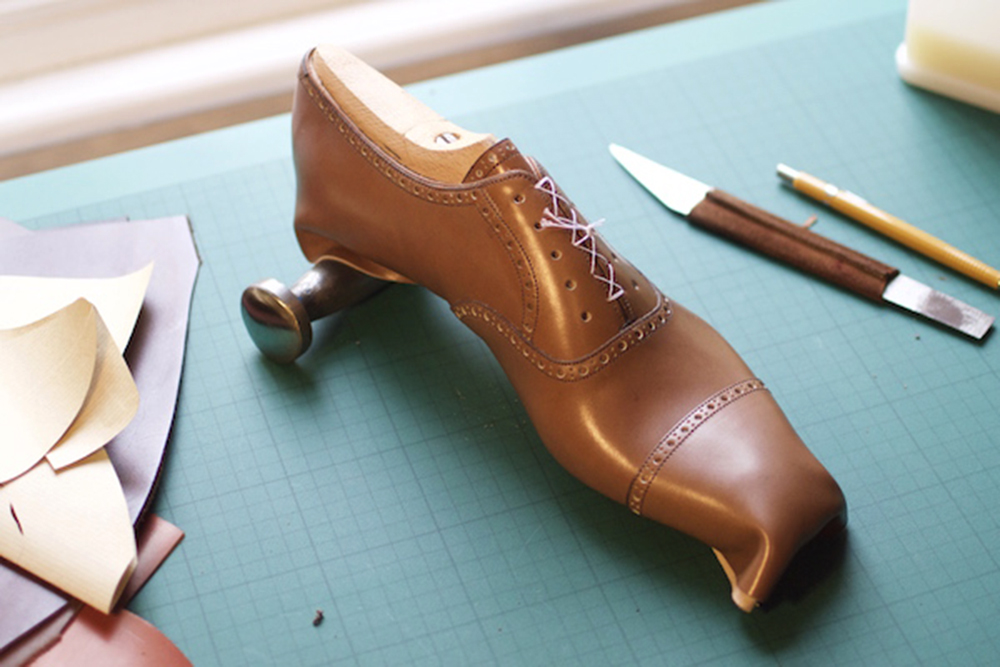
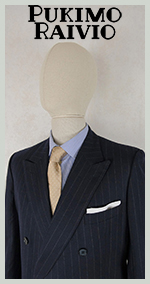

From what I’ve seen, he’s one of the best young makers working. Of course he had a great training with Lobbs…where they’ve “turned their backs on the machine.”
You see that clearly in his remarks above–
“…La Belle Epoque, where craftsmanship essentially hit an apex before industrialisation really took over. We’ve lost an awful lot since those enlightened days, and so much of our craft has become informed by how machinery operates rather than how we once did.”
Big thumbs up to that.
Interesring read!